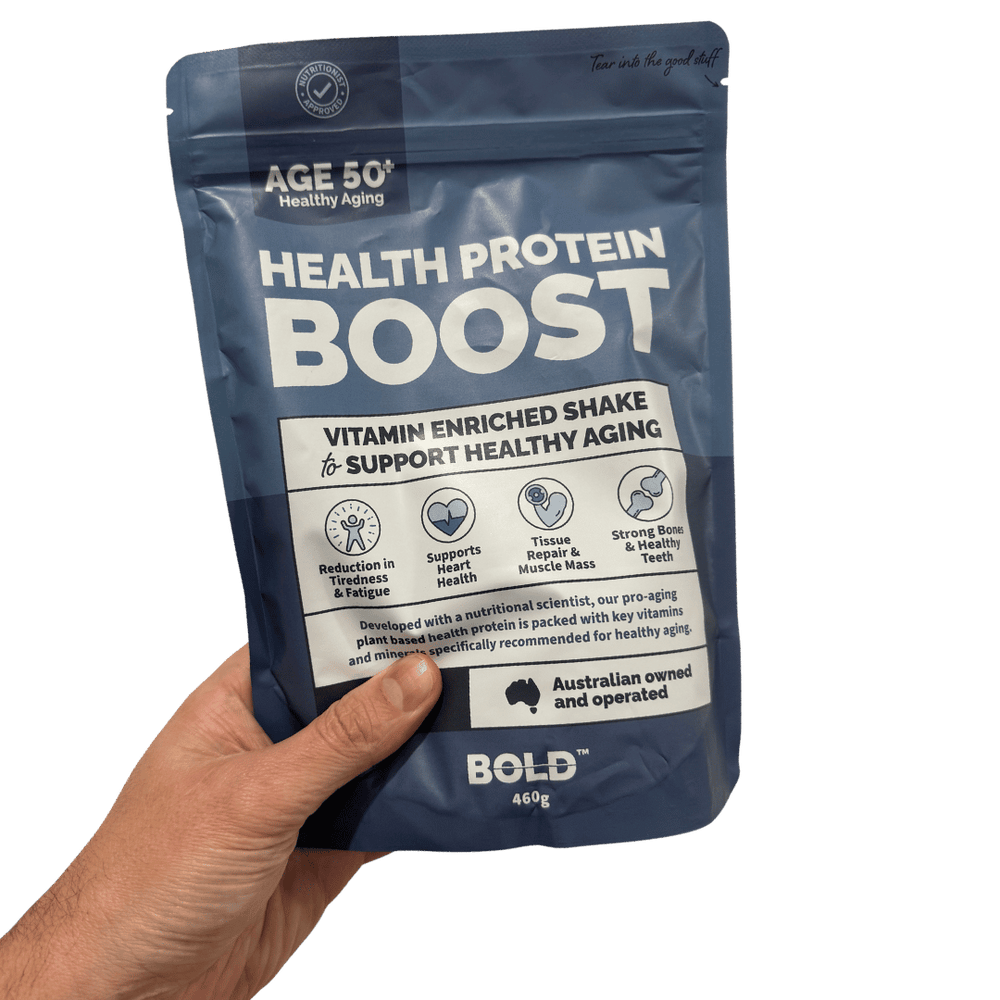The benefits of Creatine for healthy aging
Creatine is best known for its use in sports, but robust evidence increasingly supports its role in:
- supporting muscle strength,
- physical function,
- and more recently cognition in older adults —especially when paired with resistance activity.
Creatine and Muscular Health 💪
Numerous randomized trials and meta-analyses find that creatine supplementation, combined with resistance-type activity, can support extra muscle mass and strength compared to exercise alone in adults aged 50+.
A 2019 systematic review concluded that creatine plus exercise leads to measurably better muscle outcomes than exercise alone.[i]
The best results are achieved alongside regular movement.[i]
The 1,2,3 of Creatine and Brain Health 🧠
- The brain burns a lot of energy.
- Fun fact: our brains are responsible for about 20% of our energy use.
- Creatine supports this via its role in ATP recycling.
Recent reviews suggest creatine may provide improvements in short-term memory and cognitive processing speed in older adults, although impacts on overall cognition can be variable.[i] This is a hot topic in research at the moment.
The effects of extra creatine are most notable for those with lower baseline creatine (such as vegetarians, or people eating less meat) or under cognitive stress.
Significant “brain sharpness” or dementia prevention claims are not supported yet, but creatine can be a small, safe addition to holistic ageing strategies.
How much do I need? Dosage, Form, and Safety
Most studies use 3–5 grams/day of creatine monohydrate, with or just after meals for best absorption. Loading phases or high doses are not needed.
Creatine monohydrate remains the safest and most thoroughly studied form.
Long-term safety is well established for healthy adults, but medical advice is encouraged for those with pre-existing kidney disease or on certain medications.
Mild, temporary water retention is the most common side effect for new users, subsiding over time.
Who Might Benefit Most? ✅
- Adults 50+ engaging in any form of resistance activity (including real-life tasks)
- Vegetarians and people eating less meat (lower dietary creatine)
- Anyone seeking a modest boost to muscle strength or selected cognitive functions within a healthy ageing plan
Final Thoughts
High-quality research supports creatine monohydrate as a safe, well-supported way to promote muscular and functional wellbeing for older adults involved in regular physical activity—even outside the gym.
As always, the best results come not from supplements alone, but from staying active, embracing practical strength in daily life, maintaining social connections and an overall healthy lifestyle.

[i] Xu, C., Bi, S., Zhang, W., & Luo, L. (2024). The effects of creatine supplementation on cognitive function in adults: a systematic review and meta-analysis. Frontiers in nutrition, 11, 1424972. https://doi.org/10.3389/fnut.2024.1424972
[i] Candow, D. G., Chilibeck, P. D., Forbes, S. C., Fairman, C. M., Gualano, B., & Roschel, H. (2022). Creatine supplementation for older adults: Focus on sarcopenia, osteoporosis, frailty and Cachexia. Bone, 162, 116467. https://doi.org/10.1016/j.bone.2022.116467
[i] Candow, D. G., Forbes, S. C., Chilibeck, P. D., Cornish, S. M., Antonio, J., & Kreider, R. B. (2019). Effectiveness of Creatine Supplementation on Aging Muscle and Bone: Focus on Falls Prevention and Inflammation. Journal of clinical medicine, 8(4), 488. https://doi.org/10.3390/jcm8040488


